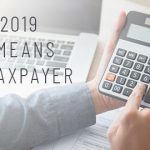National Insurance and Tax for Pensioners – Explained
One of the most common questions I get asked by people nearing retirement or those who are of pension ages is…”How does my National Insurance and Tax work now that I’ve reached pension age?” So today I thought I’d write a quick blog just explaining everything nice and simply.
National Insurance
Firstly, as soon as you reach the state pension age you no longer have to pay National Insurance! Happy days! However if you are still working as a self-employed person then you will have to continue paying National Insurance – Class 4. It’s as simple as that!
Income Tax
Unfortunately not much changes here, you’ll still get your tax-free personal allowance of £11,000 but as soon as you go over this you’ll pay tax at the usual rates (2016-2017 rates below).
A common myth is that your pension is tax-free and doesn’t get included within your personal allowance…however this unfortunately is incorrect and I’m sorry to say that your pension is 100% classed as a taxable income.
| Band | Taxable income | Tax rate |
|---|---|---|
| Personal Allowance | Up to £11,000 | 0% |
| Basic rate | £11,000 to £43,000 | 20% |
| Higher rate | £43,001 to £150,000 | 40% |
| Additional rate | over £150,000 | 45% |
For a more detailed look at these rates and what items are tax-free then please see my previous blogs here:
Income Tax Rates for 2016-2017
So to conclude, in all honesty not much changes with income tax once you reach the state pension age – however you will cease to pay National Insurance…unless you are self-employed, then you will continue to pay National Insurance Class 4.














Share On